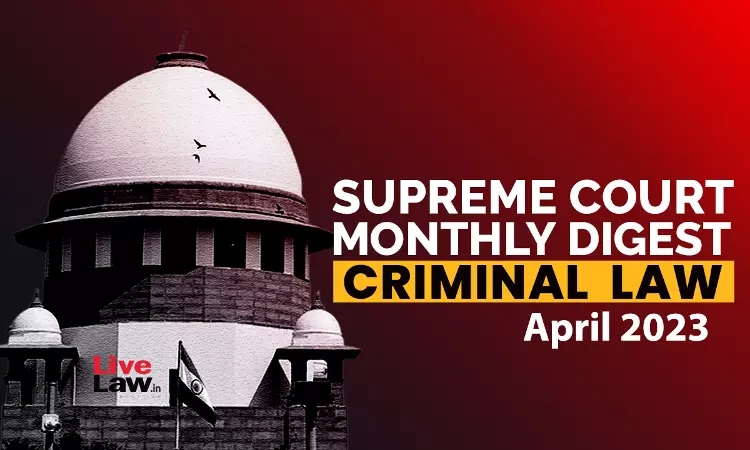Next Story
13 May 2023 10:45 AM IST
Accused not entitled to default bail when first extension (passed in absence of accused) wasn't challenged & second extension was passed in his presence. Qamar Ghani Usmani v. State of Gujarat, 2023 LiveLaw (SC) 297 Alleged lack of jurisdiction of court no ground to transfer case: Supreme Court dismisses PFI student wing leader's plea. Ka Rauf Sherif v....

